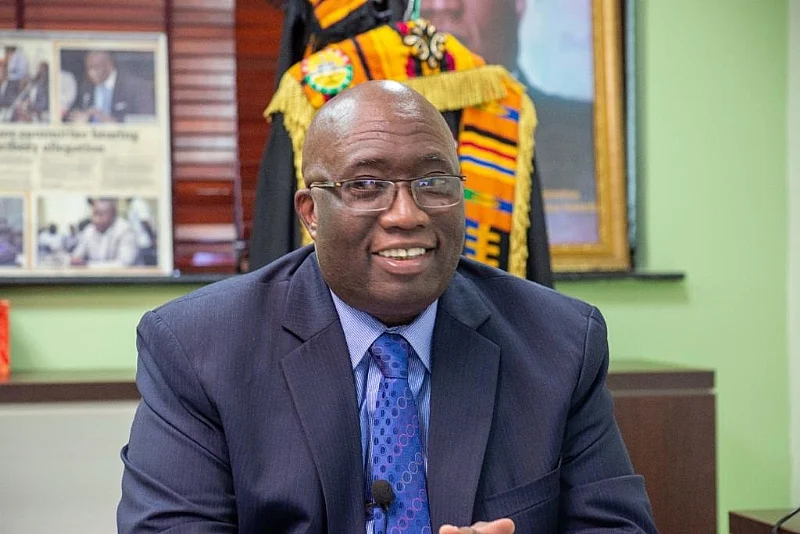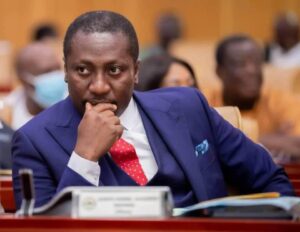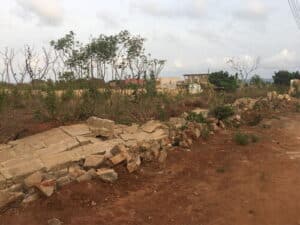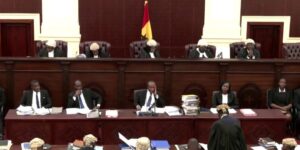Former Deputy Speaker of Parliament, Joe Ghartey says chiefs must be allowed to participate in the local governance system in the country.
According to him, Ghana needs to re-orient its democratic architecture and ensure that the wisdom and expertise of chiefs can be tapped to enhance representative governance in the country
The former Presidential Aspirant of the ruling New Patriotic Party said this when he was speaking as a Guest Speaker on the Constitution Day Public Lecturer organized by One Ghana Movement where he suggested that “As I said before there are parts of the 1992 Constitution which we can look at as potential areas for amendment”.
The Member of Parliament for Essikado/Ketan explained that the provisions of the Constitution on Local Government are one such area. Article 55 (3) of the 1992 Constitution restricts the right of political parties to be involved in District Assemblies or local government units.
He noted that after the recent District Assembly elections supporters of the two major political parties claimed they had won the election, adding that how can they win an election they did not take part in? Adding that “The truth of the matter is that political parties at the local level actively support supposedly so-called non-partisan candidates. Even the colour scheme of their campaign posters is a clear indication of which political party each candidate belongs to”.
The former Minister for Railway Development further explained that “We must also look at electing members of Unit Committees, Assemblies and the Chief Executives of the Assemblies on a partisan basis and also funding of our representatives at the local level should be examined. This review of local governance should also look at the role of Chiefs in our governance at the local level”.
Mr. Ghartey added “There are some who preach Armageddon if the 1992 Constitution is not reviewed and hold the view that the survival of the 1992 Constitution hinges on its total review. I beg to differ and let me use this occasion to emphasise my confidence in our Constitution”.
He continues “The Constitution has its letter of the law. Equally, the Constitution has its spirit. It is the fountainhead for the authority that each of the three arms of government possesses and exercises. It is their source of strength”.
“Its language, therefore, must be considered as if it were a living organism capable of growth and development. Indeed, it is a living organism capable of growth and development, as the body politic of Ghana itself is capable of growth and development. A broad and liberal spirit is required for its interpretation. It does not admit to a narrow interpretation. A doctrinaire approach to interpretation would not do. We must take account of its principles and bring that into consideration to bear, in bringing it into consideration with the needs of our time”.
He said “These hallowed words by Sowah JSC were in respect of the 1979 Constitution. They hold for the 1992 Constitution too in my humble opinion. This being the case, we should hasten slowly along our quest to review the Constitution. Some tinkering here and there is not what I am against. A wholesale review is what I oppose vehemently”.
Joe Ghartey further noted that “The amendment which allowed for dual citizenship is very welcome. It supports my view that we have to involve all Ghanaians and people of Ghanaian descent in the development of our nation. The amendment which extends the work life of a public servant is also welcome in my view. No doubt there are parts of the 1992 Constitution which with a compelling argument may lend themselves to the possibility of amendment, but as I said previously, we must hasten slowly”.
“Our Constitution is a living document and it is growing, albeit it is very much in its infant stages. The separation of powers between the executive and the legislature, the Council of State and Local Government are areas that several people have identified as being likely candidates for amendment or review should we decide to embark as a nation”.
He added that the 1992 Constitution also established the Council of State. Admittedly the full impact of the Council of State is yet to be felt on our body politic. However, I do not think the answer is to let the Council of State publish its advice as a general rule as has been argued by some”.
” Indeed, I think that the framers of the Constitution envisaged the Council of State as a form of advisory council like elders who advise the Chief or the Head of Family under customary law”.
He concluded that the independent constitutional bodies and key institutions are being called upon to improve their standards by the citizenry, adding that democracy is deepening every day and we are in a much better place in our understanding of democracy than when we started this democratic journey in earnest on 7th January 1993 with the coming into force of the 1992 Constitution.






